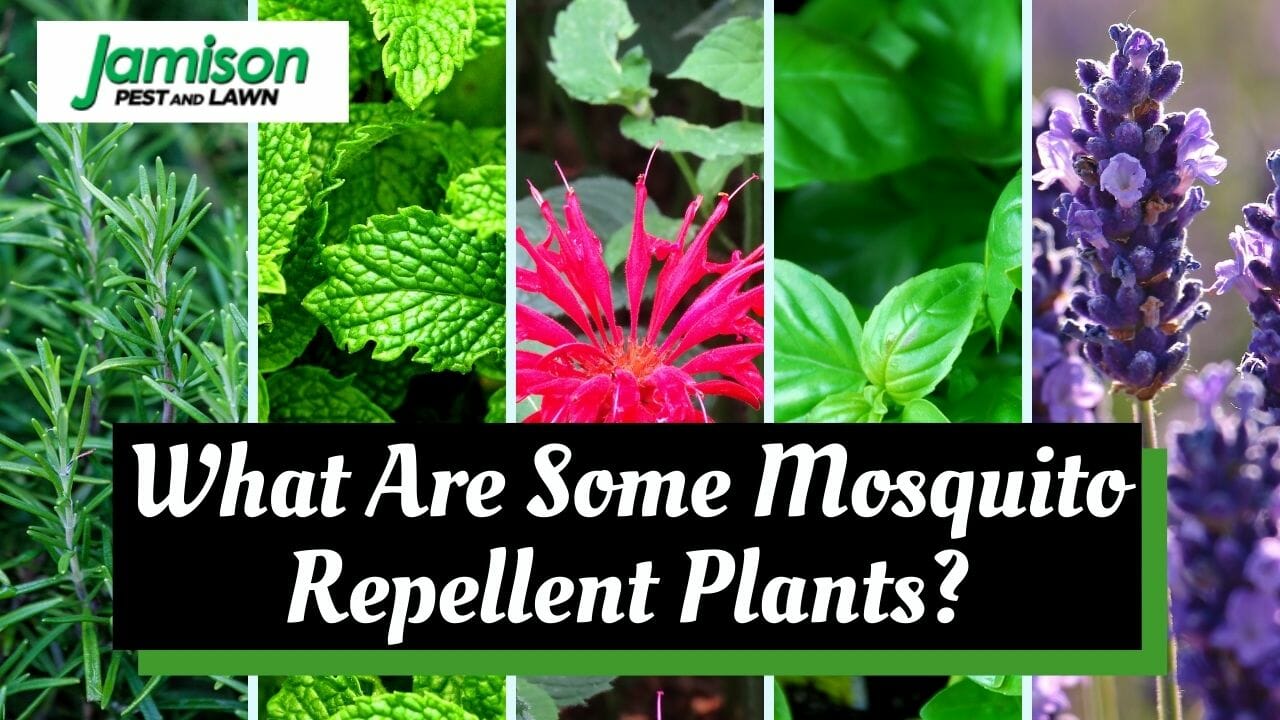Summer is here, and we know this is when mosquitoes are everywhere, which we all have to be careful about. Female mosquitoes, which provide sustenance for their growing larvae, appear to have the most venomous bites. This was a thorough investigation of plants with natural mosquito repellent characteristics, particularly cedar oil, menthol, and vanilla extract, which have a pleasant scent without triggering allergies. The team at Jamison Pest and Lawn has bought you some mosquito repellent plants you can invest in this summer. These plants will help you stay protected from annoying mosquitoes and their bites.
Top 9 Mosquito Repellent Plants For Your Home
Mosquitoes are known to spread viruses and illnesses. This is the reason why we invest in buying mosquito repellents. With many mosquito repellent products available on the market, it can be confusing at times which one to buy.
However, you might not have known that your own backyard could offer a solution to that problem. Certain plant species can act as a natural mosquito repellent.
Basil
Basil is one of the most common mosquito repellent plants. Pests are kept at bay by the aromatic fragrance that basil leaves emit. And, because all forms of basil repel flies and mosquitoes, feel free to experiment with different types of basil to incorporate into your garden. This herb prefers a moist environment, good drainage, and plenty of sunlight. You can plant basil alone or with other flowers in containers or on the lawn or backyard, as long as both plants fit the exact needs.
Lavender
Lavender oil is said to impair a mosquito’s ability to smell! Once established, this plant is exceedingly hardy and drought-resistant, and it only needs whole light and good drainage. While it can survive in various conditions, it prefers warmer climates.
Catmint
Catmint is found growing in practically any environment. It’s a member of the mint family that thrives as a commercial plant and a weed. It’s effortless to care for and might even spread to other parts of your yard. They’re excellent insect repellents if you’re willing to overlook the plant’s nefarious nature.
Mint
Mint is a nontoxic and effective repellent for mosquitoes, ants, and flies. The stronger the scent, the fewer bugs you’ll have. Mint can be grown in pots on your patio to reach easily. You may even dry the leaves and can use them as a natural pest control element inside your home.
Pennyroyal
Pennyroyal is a member of the mint family with a strong scent that repels mosquitoes and other insects, making it one of the most effective mosquito repellent herbs. It is recommended to grow it in a container as this plant is harmful to humans and animals. Pennyroyal grows well in whole light and moist but not soggy soil.
Rosemary
Rosemary is another effective insect repellent. As a homeowner, you may be familiar with rosemary. Its woody aroma is what repels mosquitoes, cabbage moths, and carrot flies. They thrive in hot, dry settings and flourish in pots, making them suitable for winter climates. It may also be trimmed into various shapes and sizes, making them ideal for edging plants.
Floss Flower
Ageratum, also called floss flower, produces clusters of fuzzy, tiny purple blossoms. It is a low-growing annual that is especially well-suited to containers. It secretes coumarin, a substance that mosquitoes despise. Plant it in a part-sun spot with well-draining soil and water it periodically to prevent the soil from drying out.
Fennel
The fern-like stalks of fennel can lend texture and character to a garden setting. Although this herb repels mosquitoes, it can act as a host for swallowtail butterfly larvae. Fennel is a perennial that thrives in regions with at least 6 hours of direct sunlight and good soil.
Scented Geraniums
While most pelargonium cultivars are grown for their vibrant flowers, fragrant geraniums are prized for the pleasant aromas of their leaves. This annual comes in various colors, but lemon, lime, orange, and peppermint geraniums are the most effective insect repellents. Grow them in a sunny area, allow the soil to dry out before watering, and don’t fertilize because scented geraniums thrive in a little arid environment.
Mosquito repellents such as citronella, lemon balm, and lemongrass are also helpful.
How Much Are These Plants Comparable To A Bug Screen?
You might be wondering how effective plant-based insect repellents are if you’re seeking a natural mosquito repellent. After all, you don’t want to waste time (or money) on an ineffective solution.
So, how does an insect screen compare to a mosquito-repellent plant? In general, they both do a decent job keeping mosquitoes at bay. There are, however, a few crucial distinctions to be aware of.
A mosquito repellent plant, for example, will be more expensive than a bug screen. This might not be the ideal solution for you if you’re on a tight budget.
On the other hand, a mosquito repellent plant will need to be refreshed more frequently than a bug screen. The plant’s compounds will eventually disperse and cease to be effective. Be prepared to replace your plants every few weeks if you go with this method.
Finally, it’s worth noting that the odor of mosquito repellent plants is unpleasant to some individuals. Whether you’re worried about this, smell the plant first before buying it to determine if it’s something you can handle.
Why Planting These Plants Close Together Is Beneficial
Plant mosquito repellent plants if you seek a natural solution to keep insects away. Mosquito-repelling compounds are released by these plants, making them an excellent addition to any yard or garden.
One of the advantages of having these plants is that they can be grown near together without causing harm. This is advantageous because it allows you to cover more ground with fewer plants. It also helps keep mosquitoes out of the area around your house, lowering your risk of being bitten.
There are several species of plants to pick from if you want to give them a try. Citronella, lemongrass, and marigolds are some of the most common choices. These plants are all easy to come by and reasonably inexpensive, making them an excellent choice for anyone on a budget.
Try mosquito-repellent plants when you’re seeking a natural solution to keep mosquitoes at bay. It’s possible that you’ll be amazed at how well they function!
Conclusion
Several mosquito-repellent plants can keep these pesky insects at bay. The most effective include rosemary, peppermint, bee balm, basil, lavender, catmint, citronella, mint, lemongrass, marigolds, and catnip. By planting these around your home or patio, you can create a natural mosquito-free zone. These plants are also safe to use around children and pets, making them ideal for those with little ones.
So next time you’re looking for a way to keep mosquitoes away, consider using one of these mosquito repellent plants. If you do not want this trouble, you can just call Jamison Pest and Lawn at (901) 452-1505. We provide the best mosquito prevention program, which allows you to have the power to reclaim your backyard from insects!




